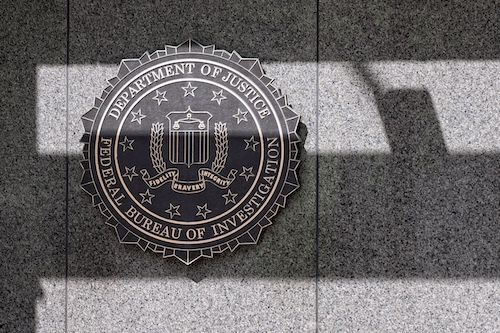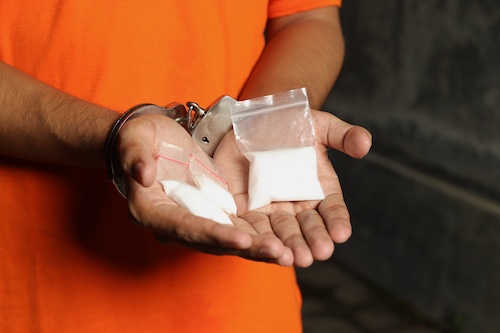Federal Trafficking Convictions: The Future at Risk
A federal trafficking conviction in Texas can change everything. These convictions involve harsh laws and serious penalties that affect your freedom, job, and even your family. Understanding these laws and their consequences is critical.
In this blog, we cover what federal trafficking convictions mean for your life in Texas and how working with an experienced federal crimes lawyer can help you protect your rights and your future.
Understanding Federal Trafficking Laws in Texas
Federal trafficking laws in Texas are strict and far-reaching. These laws punish many forms of trafficking, including sex trafficking and labor trafficking.
What Constitutes Federal Trafficking?
Federal trafficking includes sex trafficking, labor trafficking, child sex trafficking, and forced labor. The Trafficking Victims Protection Act (TVPA) defines these crimes under 18 U.S.C. § 1591. Trafficking uses force, fraud, or coercion to exploit victims. Trafficking crimes often involve threats, violence, and fraud. Traffickers force people into commercial sex acts or labor against their will.
Texas’s Role in Federal Investigations
Texas works with federal agencies to combat human trafficking. Local human trafficking task forces support federal trafficking investigations. These groups coordinate with the FBI’s Victim Services Division and the Department of Homeland Security. Federal agencies lead efforts to address human trafficking in Texas. This includes investigating domestic servitude and labor trafficking.
Key Federal Statutes and Provisions
The Trafficking Victims Protection Act (TVPA) is the first comprehensive federal law to combat human trafficking. It helps recover victims and prosecute traffickers. Other laws address forced labor, involuntary servitude, and the exploitation of children.
Statutes like 18 U.S.C. §§ 1589–1592 and 18 U.S.C. § 2251 target human trafficking and related crimes. Texas also follows these federal laws to address human trafficking in the state.
Key Federal Statutes and Provisions
Federal trafficking laws rely on several key statutes. These laws help protect victims and punish traffickers. Texas follows these federal rules closely.
Trafficking Victims Protection Act (TVPA)
The Trafficking Victims Protection Act (TVPA) created the first comprehensive federal law to address human trafficking. It covers sex trafficking, labor trafficking, and forced labor. The TVPA helps combat forced labor, debt bondage, and child sex trafficking.
It requires traffickers to use force, fraud, or coercion to exploit victims. The TVPA also supports victims through witness assistance and trauma-informed services. This law ensures that victims of trafficking can find safety and rebuild their lives.
Subsequent Reauthorizations and Updates
The TVPA has been reauthorized several times to strengthen federal trafficking laws. These updates increase penalties for traffickers and provide better protection for victims. They expand the role of federal agencies like the FBI’s Victim Services Division and the Department of Homeland Security.
The updates support human trafficking task forces and address commercial sex acts and domestic servitude. Reauthorizations have improved resources for investigations and prosecutions of traffickers.
Other Federal Statutes
Other federal laws cover trafficking crimes and related offenses. These include 18 U.S.C. §§ 1589–1592, which address forced labor, involuntary servitude, and labor trafficking. These laws help protect victims who have been coerced or defrauded. 18 U.S.C. § 2251 focuses on child sexual exploitation, ensuring justice for exploited children.
These laws work together to create a strong federal response to human trafficking in Texas. They help federal crimes attorneys build strong cases to protect victims and bring traffickers to justice.
Immediate Consequences of a Federal Trafficking Conviction
Federal trafficking convictions have serious and life-changing consequences for anyone found guilty. These consequences start at sentencing and affect many parts of life.
Mandatory Minimum Sentences and Fines
Federal trafficking convictions carry heavy penalties. Sentences often include mandatory minimums, such as 15 years in prison for sex trafficking of minors under 18 U.S.C. § 1591. Convictions can lead to fines and the forfeiture of property linked to the crime. These sentences are severe and leave little room for flexibility. The law punishes human trafficking, forced labor, and sexual exploitation with strict sentences.
Loss of Rights and Benefits
A federal trafficking conviction can strip a person of many rights. Convicted persons may lose the right to own firearms and face limits on government benefits. Many will also be barred from certain jobs or licenses. These consequences impact a person’s ability to work and provide for their family. They also create barriers to housing and financial services.
Immediate Social Impact
A federal trafficking conviction carries a heavy social stigma. Friends, family, and community members may turn away. News of convictions can damage reputations and leave lasting marks on personal relationships. This impact is strong for those convicted of sex trafficking or child sex trafficking. The social fallout begins immediately after sentencing and can last for years.
Risk of Deportation for Non-Citizens
Federal trafficking convictions also create immigration issues for non-citizens. Many non-citizens convicted of trafficking crimes face deportation. This risk affects both documented and undocumented immigrants in Texas. Deportation can separate families and create long-term harm. These immigration consequences add another layer of punishment to federal trafficking convictions.
Long-Term Consequences and Collateral Effects
The long-term consequences of a federal trafficking conviction go beyond the immediate punishment. These effects can change a person’s future and create many challenges.
Barriers to Employment and Housing
A federal trafficking conviction can make it difficult to find work. Employers may reject job applicants with these convictions, especially for jobs that involve children, vulnerable adults, or security clearance. Housing options also become limited. Many landlords will not rent to those with federal trafficking convictions, and housing authorities may bar them from public housing programs.
Loss of Educational and Social Opportunities
People with federal trafficking convictions may struggle to continue their education. Schools and colleges often deny admission to those with trafficking records. This limits a person’s ability to gain new skills or rebuild their life. Social support can also weaken, as many community groups and programs may refuse to help those with federal convictions.
Immigration and Deportation Risks
For non-citizens, a federal trafficking conviction can lead to deportation. Federal law treats trafficking as a serious offense that can remove legal status or bar entry to the country. This can break apart families and create permanent separation. Deportation for federal trafficking crimes affects many people in Texas.
Lifelong Social Stigma
Federal trafficking convictions come with a strong social stigma. Communities often judge those with these convictions as dangerous or untrustworthy. This stigma follows people long after they have served their sentences. It affects personal relationships, community involvement, and a person’s ability to rebuild their life. The harm from these convictions can last for decades.
Contact an Experienced Federal Crimes Lawyer at Cowboy Law Group ASAP!
If you are facing charges for federal trafficking crimes, reach out to our team at Cowboy Law Group. Our experienced federal crimes attorneys are ready to protect your rights and fight for your future. We know how to handle the complex federal laws and serious consequences involved in these cases.
Contact us at 832-326-2932 for a free case consultation today!







